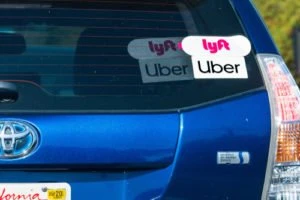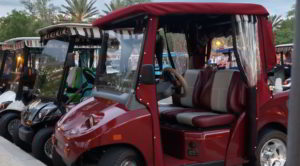
Every prospective Uber or Lyft driver must pass background and driving record checks in order to qualify as a rideshare driver. Both companies take these requirements seriously, as they have faced lawsuits based on their negligent hiring practices in the past. That typically means a person cannot drive for Uber/Lyft with a bad driving record.
While most states do not consider rideshare companies like Uber or Lyft as employers, the organizations maintain the discretion to reject driver applications based on applicants’ criminal record or history of bad driving. Despite these efforts at regulating their pool of drivers, Lyft and Uber operators are frequently responsible for causing dangerous motor vehicle accidents.
Uber’s Driving Requirements
Uber has a wide range of requirements for their drivers. The failure to comply with any of these requirements could prevent a person from ever driving for Uber. For starters, Uber has baseline requirements for every driver, like holding a valid driver’s license, having at least one year of driving experience, and having access to a four-door vehicle.
The most in-depth step of the application process is known as driver screening. During this screening, Uber will review an applicant’s driving record and criminal history. The results of the screening are responsible for many denied applications.
The driver screening begins by confirming an applicant’s minimum experience. These records identify when a license was issued, which will confirm if a motorist meets the one-year experience requirement or not. The Department of Motor Vehicle (DMV) records will also shed light on whether an applicant has any moving violations on their record or not. To clarify, a moving violation is a traffic infraction committed while a vehicle is in motion. In and of itself, minor moving violations will not prevent a motorist from driving for Uber. However, Uber will deny an application if the driver’s history shows the applicant has accrued more than three minor moving violations in the previous three years.
More serious offenses can derail an application to drive for Uber—even if they only happen once. For example, convictions for driving under the influence (DUI) or reckless driving will disqualify an Uber driver. Speeding tickets are typically considered minor violations unless they involve traveling 20 miles per hour over the speed limit. Uber will not count serious offenses that occurred more than seven years prior to the application date. Uber will also never hire anyone with felony or sex offense convictions.
To consult with an experienced car accidents lawyer today
855-780-9986
Lyft’s Driving Requirements
The requirements for Lyft drivers are very similar to those enacted by Uber. Like Uber, Lyft requires its drivers to meet the company’s basic age and experience requirements. Lyft also undertakes driver screenings as well. Lyft evaluates both DMV records and criminal histories to determine if a driver meets their basic criteria.
Lyft breaks up every incident on a driving record into either moving violations or major moving violations. Standard moving violations include traffic tickets for running red lights or speeding, among other examples. A traffic accident also qualifies as a minor violation. Lyft will reject the application of anyone that has had more than three moving violations in the past three years. This is identical to Uber’s requirement.
Lyft takes a more heavy-handed approach to major moving violations. According to Lyft, a major moving violation includes a conviction for driving on a suspended license or reckless driving. An applicant may not have a conviction for any major moving violation in the previous three years. This is a departure from Uber’s approach, which takes into account convictions reaching back seven years.
Drinking and drug-related convictions are reviewed over a longer history. Any conviction for drug offenses or DUIs in the past seven years will disqualify you from driving for Lyft. The same is true for serious driving-related felony offenses, like hit-and-run accidents.
Like Uber, Lyft also permanently bans certain offenders from ever driving for their platform. Examples include anyone with a conviction for violent crimes, felonies, or sexual offenses. There are also certain property damage or theft convictions that could cost you the ability to drive for Lyft.
The Unfortunate Reality of Rideshare Accidents
Whether or not a person can drive for Uber/Lyft with a bad driving record will depend on how long ago their driving offenses occurred. Recent, frequent traffic violations could prevent an applicant from driving for Uber or Lyft, but older offenses might not be so problematic.
Despite the efforts to block dangerous drivers from their driver pools, Uber and Lyft operators frequently cause dangerous motor vehicle accidents. If you have suffered an injury in a rideshare accident, do not hesitate to call Bogin, Munns & Munns at (407) 578-9696 to learn more.
Call or Submit Our Consultation Request Form Today





